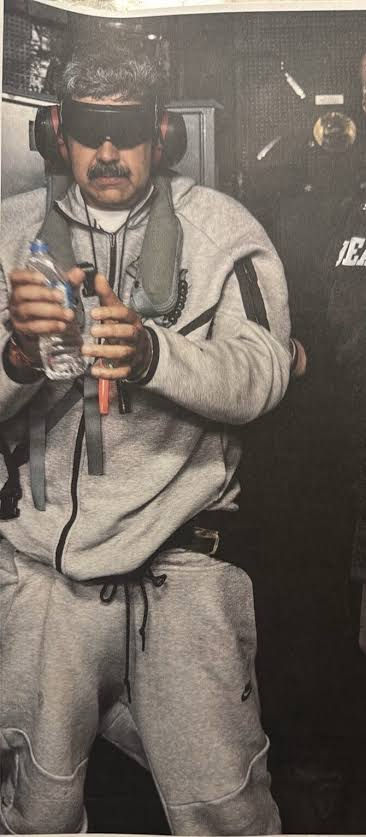What happened in Moscow and why has ISIS attacked Russia?
- Sebastian Palacios.

- Mar 24, 2024
- 3 min read
At least 140 people have died and more than 100 are severely injured as a result of the terrorist attack that happened this Friday at the Crocus concert arena. The Crocus is a huge complex with a capacity for 6,000 attendees and located on the Moscow Ring Road, around 30 km from the city center.
At 19:55, the perpetrators parked their white Renault, approached the concert hall and killed anyone who got in their way. At around 20:00, the first emergency call was made to the police services, then at 20:03, the terrorists had entered the concert hall, where they stayed for 15 minutes until they escaped the building.
Russia’s Interior Ministry says a total of 11 people have been arrested in connection with the attack, and most of them are citizens of Tajikistan, a small and Muslim-majority country in Central Asia. The Crocus city hall has become the deadliest attack in Russia since the Beslan school siege 20 years ago in the province of North Ossetia, in the Caucasus. Then, armed men demanding the independence of the Muslim-majority region of Chechnya killed 334 people after taking 1,100 hostages for three days.
It is now confirmed that ISIS-K (Khorasan, a province in Iran-Turkmenistan), has carried out the attack. ISIS-K is a Sunni terrorist cell of the Islamic State founded in 2015 that operates in Central Asia and has about 2,000 fighters, according to the UN. This Islamic organization has brought together an impossible alliance, as its main rivals have been the US, Russia, China, Iran and the Taliban in Afghanistan.
Indeed, ISIS-K opposes any agreement with a state that seeks to counteract the supremacy of a strict Sunni implementation of the Sharia law. And a difference with al-Qaeda is that ISIS advocates the formation of a totalitarian state with the aim to spread its doctrine to all countries with Muslim population in the world, whereas Al-qaeda doesn’t seek to build-up a formal state. Furthermore, ISIS-K relies on social media as a means of propaganda and seeks to form a conventional army to fight its enemies.
Russia has been a rival of ISIS because of the repression of Islamic independence movements in the Caucasus, Russian military operations in Syria against ISIS to defend President Bashar al Asad, and the Kremlin’s efforts to establish connections with the Afghan Taliban.
Furthermore, the instability in west Africa has led to pro-Russian coups in Niger, Mali and Burkina Faso, with the help of Wagner mercenaries in the fight against terrorism in those countries, where there is a large presence of the Islamic State.
Now, this attack did not come completely by surprise, as on March 8, several Western embassies, including the United States, warned their nationals in Russia about the possibility of imminent attacks in the country, especially at major events in Moscow. "The embassy is aware of information suggesting that extremists are planning attacks against mass gatherings in Moscow, including concerts," a U.S. embassy statement noted three weeks ago. But in a speech on Tuesday, Putin had dismissed American warnings as “provocative,” saying “these actions resemble outright blackmail and the intention to intimidate and destabilize our society.”
Also, three days ago, the Russian security forces announced that they had neutralized an Islamic State cell that had intended to attack a synagogue in Moscow. And just a week earlier, Russia eliminated six suspected jihadists in an operation in Ingushetia in the North Caucasus. Even more, on September 5, 2023, the Islamic State claimed responsibility for an attack near the Russian embassy in Kabul, where the second secretary and a security guard were killed. Along with Pakistan and Iran, Russia maintained its embassy in Kabul after the return to power of the Taliban in 2021.
In an address to the nation, Putin claimed without evidence that the terrorists were planning to escape via Ukraine because they knew that they would be allowed to cross the border. "They tried to hide and headed towards Ukraine, where, according to preliminary data, a window had been prepared for them from the Ukrainian side to cross the state border," Putin pointed out.
However, most of the criticism is being directed to the 30 minutes late response to the attack by the Russian security forces. This, in a city that is heavily patrolled and under intense surveillance, which still brings many questions that haven't been answered.
















Comments